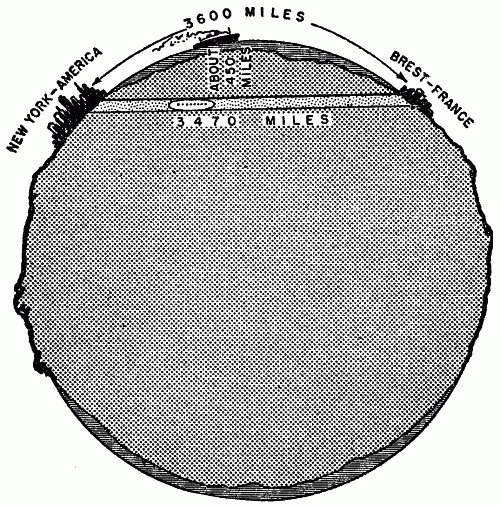The space opera begins with pages of coruscating laser beams, ravening energies, vaporized starships and exploding suns. Great narrative hook, but why all this strife? Reluctantly pausing his interstellar dogfight, our author inserts a hefty essay on recent galactic politics: "Twenty years ago, the ships of the Federation had ..." Welcome to the infamous infodump.
Maybe our writer has what she fondly believes is a new hyperspace travel gimmick. Her characters are all familiar with this but it's shoehorned into dialogue anyway: "Remind me, Professor, as though I knew nothing of it, just how the Transfinite Implausibility Woofdrive functions?" Rather like interrupting a thriller car-chase for a lecture on internal combustion engines.
SF infodumps have a long sleazy history. One pioneer was Hugo "Award" Gernsback, whose Ralph 124C41+ (1911-12) explains high-tech future transport at length with diagrams: "'You will understand it better by examining this chart,' and unfolding a plan, he proceeded to elaborate on the finer points of tube construction."

A personal favourite is Mack Reynolds's Lagrange Five, with repeated infodumps about a dread super-claustrophobia which doesn't affect astronauts in their roomy capsules but can strike with crippling force when you're cooped up in several cubic miles of space colony. One of its side-effects is to make victims compulsively list the synonyms: "I've got Island fever. I've got Wide Syndrome. I've got ... space cafard." Likewise doctors: "'Space cafard,' he muttered. 'So-called Island fever. Sometimes it's named Wide Syndrome.'" Our doctor then helpfully lectures a nurse, who knows all about it, on the subject of space cafard. At last the hero arrives and just for our benefit asks: "What's space cafard?" So help me, they tell him. Again.
Similarly, Anne McCaffrey's cast rehashes its common knowledge in The Tower and the Hive: "Had the Hivers but known they had met their match in Jeff Raven and Angharad Gwyn aka the Rowan as partners, they might have quit while they were ahead." (This chap is talking about his own grandparents. Love that "aka".) "And that, of course, brought the entire FT&T organization in at the time of the Deneb Penetration with the Rowan as the focus for the Mind Merge that helped Jeff Raven despatch the Hiver Scouts trying to depopulate his home world. / And why the Mrdinis decided to ask us, through Mother and Dad, to join forces and defeat the Hivers [...] since we could take out a Hiver Sphere without having to resort to suicide missions." Too much information!
But infodumps aren't necessarily bad. Some easily led people take the writing-workshop advice "Show not tell" as unassailable holy writ, but it's more a guideline. Alfred Bester's scene-setting introduction to The Stars My Destination is a brilliant, pyrotechnic infodump. Whole chapters of lyrical data-dumping feature in John Brunner's Stand on Zanzibar and Kim Stanley Robinson's 2312. Neal Stephenson's colossal Anathem is arguably all infodump, on physics, Platonic philosophy and more – but still a compulsive read despite what Adam Roberts called the annoylogisms.
For a word that seems to have been around in SF criticism forever, the origins of "infodump" are hazy. The Oxford English Dictionary SF Project website offers nothing earlier than a 1987 Usenet conversation, and Jeff Prucher's spinoff book Brave New Words credits Howard Waldrop as first to use it in print, in 1990. That has to be wrong: "info-dump" is defined as "The incompetent writer's way of revealing the details of his story's setting" in K W Jeter's novel Dr Adder, written 1972 and published 1984. In that book Jeter says the term comes from a book review in an old SF magazine, but which one? Research continues. If you find a pre-1984 or, better, pre-1972 appearance, there may be a small prize.
David Langford must remind you at length, as though you knew nothing of it, that he writes a column for SFX.